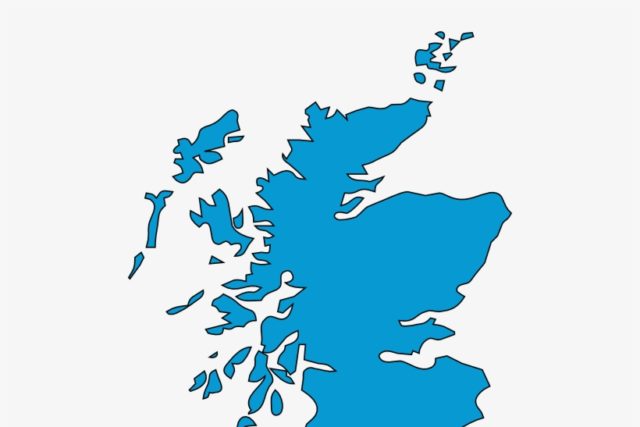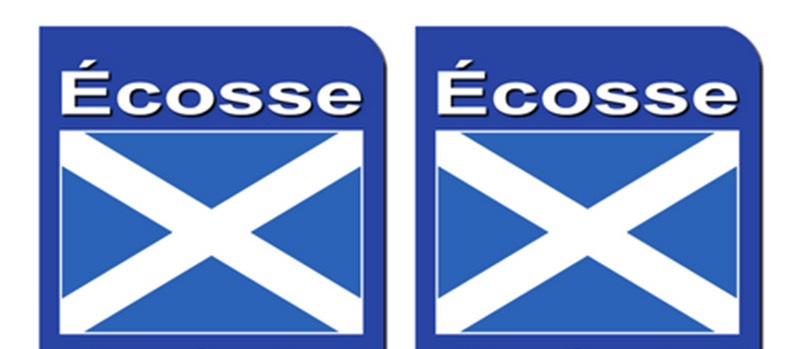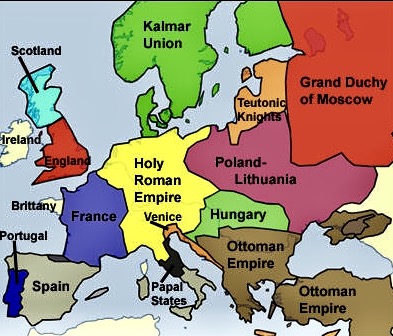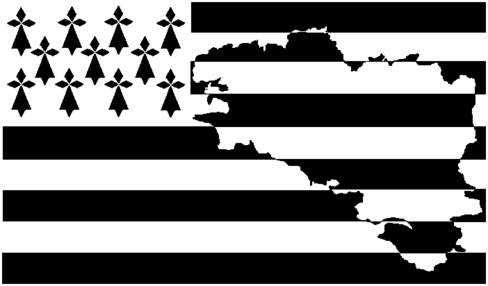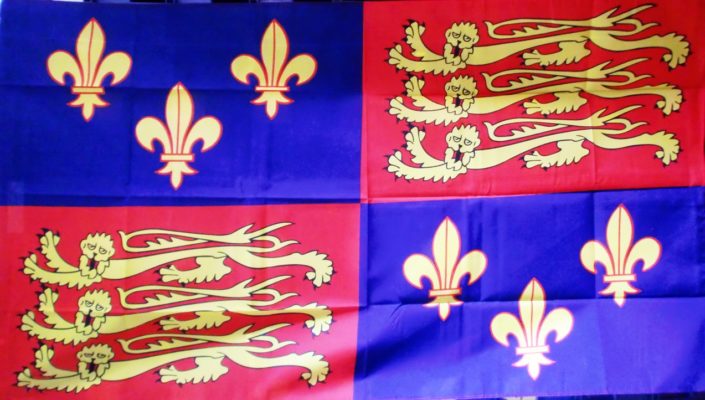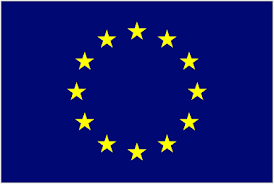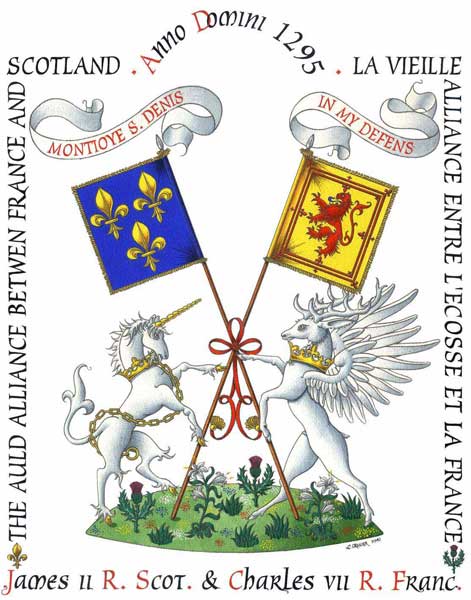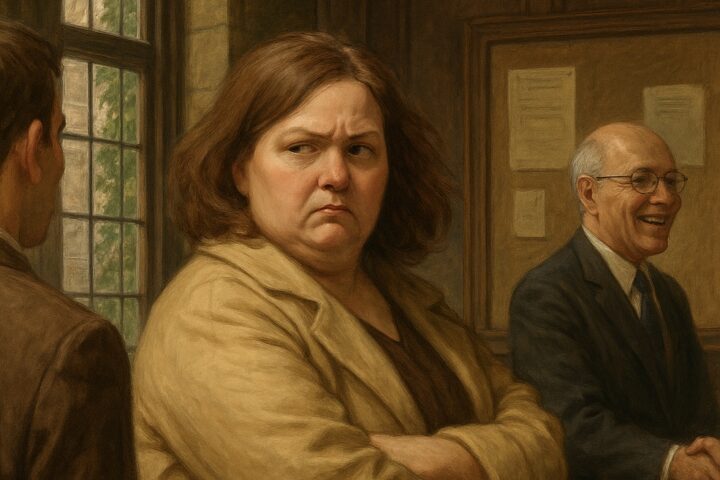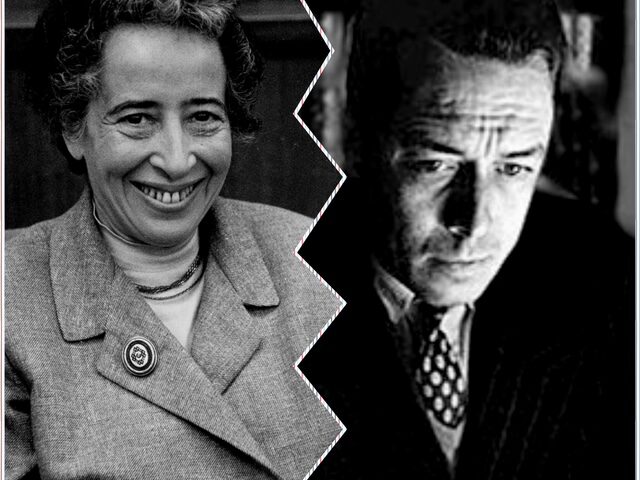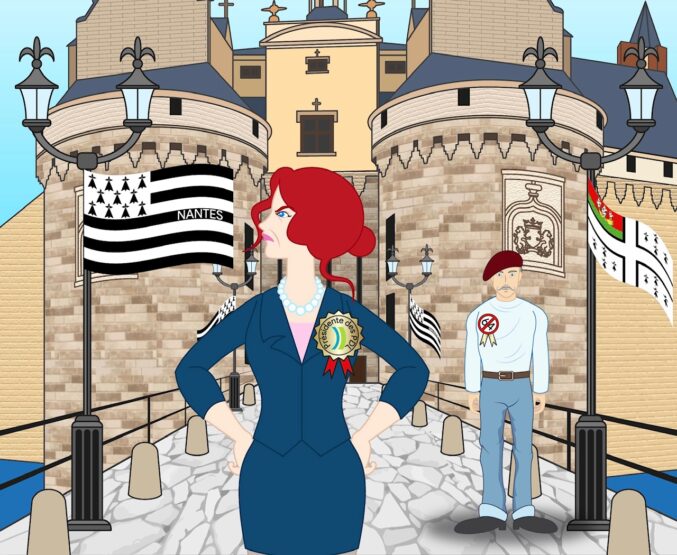Scotland re-modelled in the French style
To those in Scotland who remain nostalgic for The Auld Alliance with France
Let’s imagine for a moment a Theresa May government consulting French socialists who are looking around for something to fill their time since their electoral drubbing. These eager recruits would come to the rescue of the British government to settle once and for all the vexing question of Scotland, with the following recommendations:
1: The borders should be redrawn
The borders should be redrawn and a new autonomous entity created, comprising Edinburgh, Newcastle and Carlisle, which will be named the “Tweed River Countries” (thus depriving Scotland of an important economic and demographic centre with a consequent reduction of its population from 5.3 to 4.3 million). Popular historians in the media will maintain that Edinburgh never really had a Gaelic or even Scottish culture except perhaps under the first Stuart kings - after all one cannot ignore each and every historical monument! They will glorify the influence of the English, source of prosperity and trade. Now Edinburgh will without question have become the key North Sea port and better still, it will be open to the world through its multiculturalism and digital technology. The future looks bright with this win-win situation: there will be on the one hand, the Scotland of history and on the other hand, a devolved Scottish kingdom.
2: Edinburgh will be made capital of the new artificial entity
2: In order to render this new entity more palatable to the population of Edinburgh, their city will be made capital of the “Tweed River Countries”. This bold step will no doubt anger traditionalists but the progressive majority will be convinced that having dispensed with the Scottish Borders and Edinburgh, Gaelic culture will be strengthened. Moreover, many economists and revisionist historians will remind us that the so-called Scottish city was always facing south, towards England and France, not towards the rest of Scotland.
3: Erase the archaic word “SCOTLAND” on all historical monuments
In the spirit of compromise, a bilingual EDINBURGH / DÙN ÈIDEANN sign will be erected to display to the world that the Scottish part of the Tweed River Countries does not deny its origins. On the other hand, teams will be sent out to erase the archaic word "SCOTLAND" on all historical monuments and official buildings in order to consolidate the new Tweedian identity. At the town hall, the flag composed of the white cross on a blue background will be quietly replaced. A new white cloth will be proudly raised with embroidered blue letters spelling out "The Tweed River Countries". The new name will be hailed by the avant-garde, who will minimize the use of the Gaelic language spoken by the elite of the 19th and 20th centuries. A popular politician will be quickly introduced to silence the grumpy few and set about reorganizing the amputated Kingdom of Scotland, of which Glasgow will be the new capital.
4: A conditional referendum will be permitted in Edinburgh for a limited period
For the sake of democracy, this new division imposed by May and her French advisers must appear to be called into question. In the name of human rights, a referendum will be permitted in Edinburgh for a limited period of two years. For this, a petition on paper only (French red tape necessity!) of 100,000 people will be required, roughly 10% of the population. If “YES” prevails (to join Scotland), then the other regions of the Tweed River Countries will have to put up with the democratic verdict: the loss of their wealthy capital Edinburgh from the new autonomous entity.
Now let us suppose that the Scots are in actual fact not alcoholic or of a stingy nature, that they are not the backward people portrayed by the English stereotype. Let us consider for a moment the image of the kilted Caledonian bagpipe player who is able to differentiate between the sophisticated and anglophile Edinburgh and the rest of Scotland, this world city which has become the twin sister of London, a new status that cannot fail to arouse optimism and pride. Any signs of rejection of these exciting changes will be perceived as reactionary, nationalist and backward. Clinging on to a mere administrative division in our age of globalization surely signals an obtuse spirit...
From 2019, the boundaries of the two countries will become inviolable.
This is what is happening right now in Brittany
Does this seem unthinkable or utterly ridiculous? Yet this is what is happening right now in Brittany, with the loss of its historic capital: Nantes[1]. This large Breton town is now the capital of “Pays de la Loire”, an artificial region with no historical links between its constituent parts. Normandy was reunited but not Brittany, because Paris still fears nationalism in Brittany when in reality a reunited Brittany, prosperous, open and at ease with its two cultures (Celtic in the West and Latin in the East) would be an ideal showcase for a confident and respectful France. But it seems that centripetal forces will turn Nantes the Breton city into Nantes the peasant capital of “The Loire Countries” for evermore (even if two thirds of this artificial region has nothing whatsoever to do with the Loire).
Who cares if Paris wipes out 1200 years of history with a stroke of the pencil and relegates the Duchess and Queen, Anne of Brittany to oblivion? The Republic has no use for historical regions so all that remains to be done is to relocate the mighty castle of the Dukes of Brittany to outside Nantes; perhaps wheels may come in handy for this small task?
Joking aside, the redrawing of regional boundaries by former President François Hollande and his socialist acolytes is nothing short of an insult to Breton collective memory and world cultural heritage[2]. Emmanuel Macron, speaking at Quimper in January 2017, acknowledged that Nantes belonged to Brittany, but it is likely that the Jacobin forces and the political fat cats from Les Pays de la Loire will prevent him from doing justice to the rich history of Brittany. Scotland could consider itself fortunate in its union with England, Northern Ireland and Wales; its borders and heritage have been respected for the most part. A Scotland ruled by the French would more than likely have been reduced to a mere overseas French territory.
FΩRMIdea London, 25th July 2017.
Notes
[1] Nantes was the capital of an independent Brittany in the fifteenth century.
[2] In Brittany François Hollande went back to the borders as drawn up by Maréchal Petain under the Vichy regime. As for Alsace, it has completely disappeared as a distinct region. Only 95 of 577 French MPs voted in favour of the new territorial map of the country, or 16.5% (only 162 MPs bothered to vote).
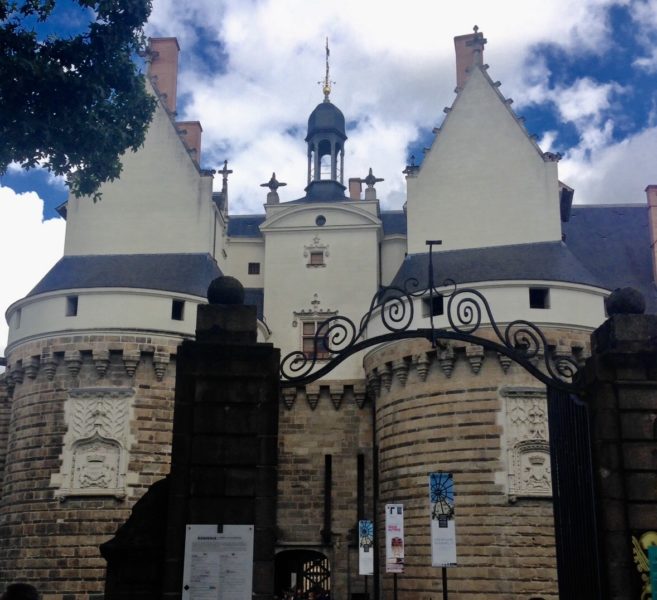 Castle of the Dukes of Brittany in Nantes
Castle of the Dukes of Brittany in Nantes
